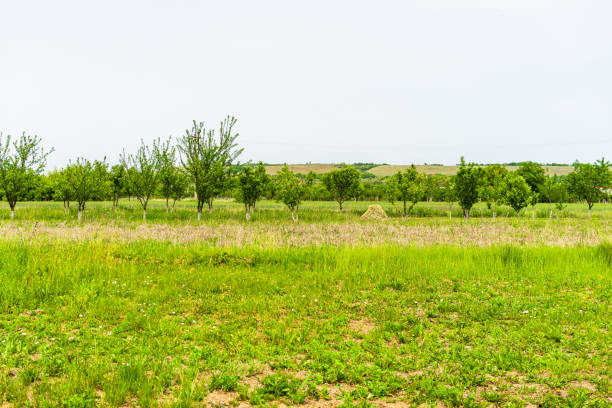Introduction
Wholesale bare root liners laurels are an essential part of landscaping and horticulture, providing gardeners, landscapers, and nursery owners with cost-effective solutions for planting. These laurels are a versatile option for creating hedges, borders, and garden features. This guide explores the benefits, varieties, and best practices for using wholesale bare root liners laurels in your landscaping projects.
What Are Wholesale Bare Root Liners Laurels?
Understanding Bare Root Liners
Bare root liners are young plants sold without soil, making them lightweight and easy to transport. They are typically dormant and shipped during the ideal planting season to ensure successful growth.
Why Choose Laurels?
Laurels are a popular choice among landscapers due to their evergreen foliage, fast growth, and ability to thrive in various soil conditions. Wholesale bare root liners laurels offer an economical way to purchase these versatile plants in bulk.
Benefits of Wholesale Bare Root Liners Laurels
Cost-Effective Solution
Purchasing laurels as bare root liners in bulk significantly reduces costs compared to buying potted plants.
Easy Transportation
Without the weight of soil, bare root liners are lighter and easier to handle, making shipping and planting more efficient.
Adaptability
Laurels adapt quickly to new environments when planted during the dormant season, ensuring robust growth.
Popular Varieties of Bare Root Liners Laurels
Cherry Laurel (Prunus laurocerasus)
Cherry laurel is known for its glossy green leaves and dense growth, making it an excellent choice for hedges and privacy screens.
Portuguese Laurel (Prunus lusitanica)
Portuguese laurel features smaller, darker leaves and a refined appearance, ideal for formal garden settings.
Mountain Laurel (Kalmia latifolia)
Mountain laurel offers stunning clusters of pink or white flowers, adding aesthetic value to any landscape.
How to Plant Wholesale Bare Root Liners Laurels
Preparing the Soil
Ensure the planting site has well-draining soil with adequate organic matter. Clear any weeds or debris before planting.
Soaking the Roots
Before planting, soak the roots in water for a few hours to rehydrate them and encourage strong growth.
Planting Technique
Dig a hole deep enough to accommodate the roots without crowding. Place the liner in the hole, spread the roots evenly, and cover them with soil.
Watering and Mulching
Water the laurels immediately after planting and apply a layer of mulch around the base to retain moisture and suppress weeds.
Care and Maintenance of Bare Root Liners Laurels
Regular Watering
Provide consistent watering during the first few weeks to establish strong roots.
Pruning
Prune laurels to maintain their shape and encourage healthy growth. Regular trimming helps prevent overgrowth and keeps the plant manageable.
Fertilization
Apply a balanced fertilizer in early spring to promote lush foliage and vigorous growth.
Wholesale Bare Root Liners Laurels for Landscaping
Ideal for Privacy Hedges
Laurels are a top choice for creating dense, evergreen hedges that provide year-round privacy.
Versatile Garden Features
From borders to standalone ornamental plants, laurels add structure and beauty to any landscape design.
Sustainable Option
Bare root liners are an eco-friendly choice as they require less packaging and reduce soil waste compared to potted plants.
Conclusion
Wholesale bare root liners laurels are a practical and economical choice for landscaping projects of any scale. Their versatility, ease of transport, and ability to thrive in diverse environments make them a go-to option for landscapers and gardeners. By choosing bare root laurels, you invest in a sustainable and cost-effective solution that enhances the beauty and functionality of your outdoor spaces.
FAQs
What are the advantages of buying laurels as bare root liners?
Bare root liners are cost-effective, lightweight, and easy to plant, making them an excellent choice for bulk purchases.
When is the best time to plant bare root liners laurels?
Plant them during their dormant season, typically in late fall or early spring, for optimal growth.
How do I care for newly planted bare root laurels?
Provide regular watering, apply mulch, and prune as needed to encourage healthy growth.
Can laurels thrive in all soil types?
Laurels are adaptable and can grow in various soil types, but they prefer well-draining soil with good organic content.
Why is this a sustainable option?
They reduce the use of soil and packaging, making them an eco-friendly choice for landscaping projects.



